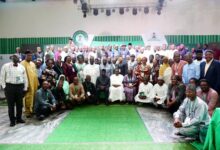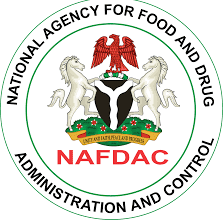NCDC Confirms Dengue Fever Outbreak In Sokoto

The Nigeria Centre for Disease Control and Prevention (NCDC) has confirmed the outbreak of dengue fever in Sokoto State.
This is according to a statement issued by the Director General of the NCDC, Dr. Ifedayo Adetifa on Saturday, December 16, 2023.
According to Adetifa, 71 suspected cases, 13 confirmed cases, and zero deaths had been reported in the state from three Local Government Areas -Sokoto South (60 cases), Wamako (three cases), and Dange Shuni (one case).
He said the majority of the suspected cases reported fell between the age range of 21- 40 years.
Dengue fever is a viral infection caused by the dengue virus and transmitted to humans through the infected mosquito’s bite. Human-to-human transmission of the virus has not been established. The virus is found in tropical and sub-tropical climates, mostly in urban and semi-urban areas worldwide.
Most people with dengue have mild or no symptoms and will get better in one to two weeks. Rarely, dengue can be severe and lead to death. If symptoms occur, they usually begin four to 10 days after infection and last for two to seven days.
The symptoms of the fever may include high fever (40°C/104°F), severe headache, pain behind the eyes, muscle and joint pains, nausea, vomiting, swollen glands, and rash. Individuals who are infected for the second time are at greater risk of severe dengue.
“The NCDC-led multisectoral National Emerging Viral Haemorrhagic Diseases Technical Working Group collaborating with partners and relevant stakeholders, has conducted a rapid risk assessment to guide in-country preparedness activities.
“The NEVHD TWG coordinates preparedness efforts for Ebola virus disease and other emerging viral haemorrhagic fever diseases,” the statement read in part.
It said the current risk level of the dengue outbreak is moderate based on a dynamic risk assessment.
“There is currently adequate in-country capacity (including technical, health workforce, and diagnostic) to respond effectively in the event of a large-scale outbreak. Nigeria has also responded to viral haemorrhagic fever epidemics like the Ebola Outbreak in 2014 and subsequently Lassa fever.
“This has built our preparedness and response capabilities for viral haemorrhagic fevers like the dengue virus over the years.
“Currently, there is a diagnostics capacity for the dengue virus at the NCDC National Reference Laboratory in Abuja and the Usman Dan Fodio University Sokoto Teaching Hospital Laboratory Centre for Human and Zoonotic Virology.
“However, the NCDC will proceed to optimise existing Lassa fever testing laboratories and others within the NCDC national laboratory network for DENV diagnosis to improve preparedness and readiness in the event of a large-scale outbreak,” the DG said.
He added that an effective response system was in place with the availability of control capacities to limit the risk of spread to other states.






